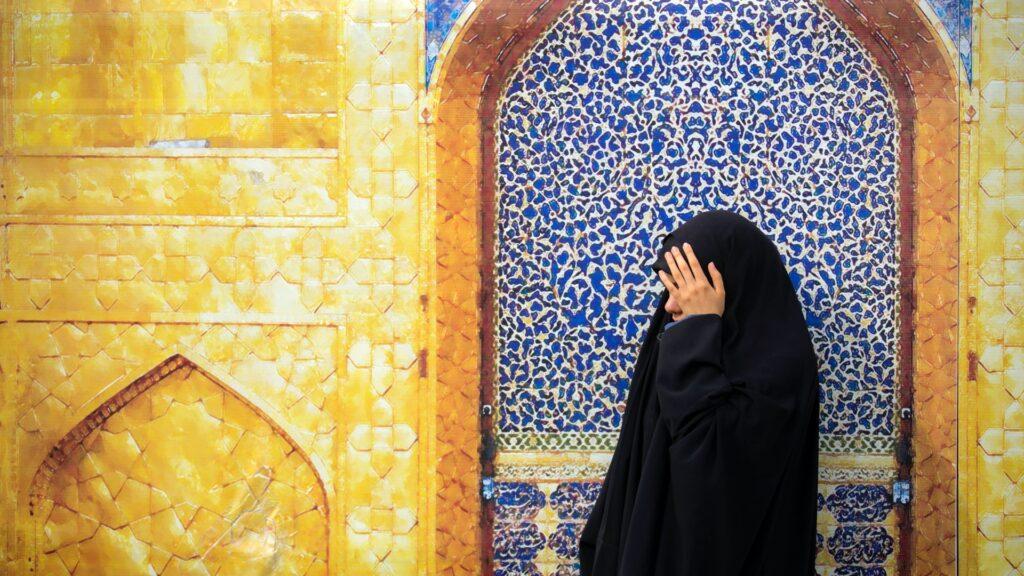Georgetown University’s Berkley Center for Religion, Peace and World Affairs hosted an event contextualizing the different understandings of how Islamic teaching pertains to women’s behavior on Oct. 11.
The event, titled “Competing Understandings of Islamic Codes Pertaining to Women in the Arab World,” aimed to analyze how Muslim citizens interpret their religious beliefs relating to women and to introduce some contextualization for these differences. Panelists included Jocelyne Cesari, chair of religion and politics at the University of Birmingham, United Kingdom and a professor at Harvard University, and Mark Tessler, co-founder and co-principal investigator of the Arab Barometer and professor at the University of Michigan.
Tessler was first inspired to co-create the Arab Barometer, a collective analysis of 14 different Islamic countries’ attitudes from 2006 to 2022, after doing his dissertation in Tunisia and noticing controversial policies such as the eradication of the hijab and increased opportunities for women in the country. Tessler said that he searched for a more systematic approach with the Barometer to discover why and how ordinary people in Islamic countries think differently.
“I’ve been wanting to learn more and more about what ordinary people think and what shapes their views. One thing that shapes their views is religion, like other places. In this case, it has to do primarily with Islam,” Tessler told The Hoya.
This statistical approach differs from Cesari’s, which focuses on more qualitative contextual research and examines the history of various nation-states. Cesari, who was trained in France with a background in politics and religion in a post-colonial world, said she looks into why Islam is used in the way it is by understanding the intersection between these two domains.
“It’s not in the text, the religious text. It’s not even in the so-called theological interpretation,” Cesari told The Hoya. “It’s really associated with what people have learned, not only in school but in the family, in the environment with their peers, by the cultural voices or authority of the country.”
The event began with an introduction of Cesari and Tessler’s anticipated research, which will combine Tessler’s statistical approach with Cesari’s contextual approach to national cultures and mentality.
Tessler opened the event with an investigation into what Islam truly means. Looking at Islamic interpretations as a dependent, independent and mediating variable, Tessler introduced his factor analysis report of various countries.
Tessler said that two statistical resources, the Arab Barometer and the Carnegie Middle East Governance and Islam Dataset, measured a pooled analysis while viewing different countries, factors and time periods that might be useful in the future. These combined results from the past two decades ultimately showed that the distribution of Islamic interpretation tends to be more liberal or toward the middle, with the first four waves of the Arab Barometer showing that only around 10% of polling took a more conservative stance.
The lecture then transitioned to Cesari’s presentation, which focused on national culture and locating different interpretations within national cultures. Cesari defines “hegemonic Islam” in her 2018 book, “What Is Political Islam?” as a combination of shared values about public Islam and state policies about right and wrong in these countries.
This nationalism of Islam, which Cesari described as a post-colonial phenomenon, has contributed to many of the questions surrounding women’s rights. In particular, Cesari touched on the interpretations of family law in places where the history of Islam is mainly associated with the history of the nation, either limiting or providing more freedom to women in the domain.
“Iranian women can run for president but not divorce their husbands,” Cesari said during the event.

The event ended with a presentation of Cesari and Tessler’s shared goals for their research, where the two scholars plan to connect their historical and statistical approaches and expand on what has already been discovered.
“We will be treating arguments variable of Islam at an individual level,” Tessler said at the event.
Tessler and Cesari, despite their varying approaches, recognized the importance of understanding the differences in interpretation of the Islamic code, especially in a time of increased debate about what role Islam plays in Arab societies.
“We think there are important social and political implications for what people think,” Tessler told The Hoya. “It’s going to shape the character of society in ways that might be very helpful and constructive, in ways that might be not constructive.”
Kira Casler (SFS ’27), an event attendee, said she has an interest in data science and wanted to learn something new at the event.
“The most important thing I think I took away from the lecture was the Arab Barometer they were speaking of,” Casler told The Hoya. “That’s something I definitely look forward to researching further.”
As a senior fellow at Georgetown, Cesari said that it is crucial to consider the intersection between Islam and politics.
“The Berkley Center is quite a unique place where religion is considered as part of international affairs and not as an independent variable,” Cesari told The Hoya. “I think it’s important to expose students to other understandings of religion.”
Correction: On Oct. 18, this article was updated to add an “s” to the title of the event and capitalize the “i” in the title “What Is Political Islam?”














